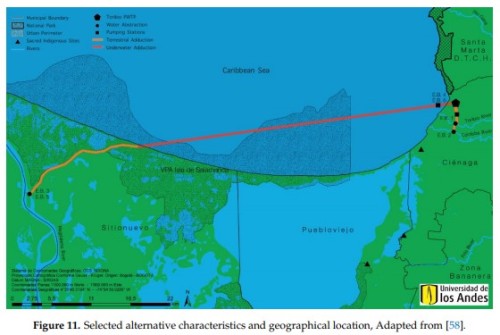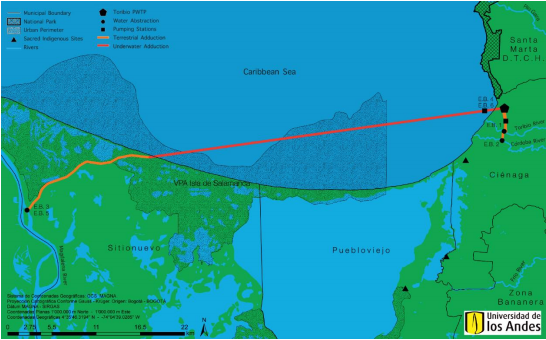Reliable and safe access to drinking water is necessary to ensure the economic and social sustainable development of human communities. This task requires a multi-criteria decision analysis (MCDA) methodology to select alternatives for new water supply infrastructure. These alternatives represent significant financial resources and are established for a long lifespan. To support decision-making in the context of building new water supply infrastructure, this study developed an MCDA methodology that integrates a hierarchy of non-economic benefits and the expected costs into a global index. Our methodology was implemented in the city of Santa Marta, Colombia. This city currently has a 60% drinking water shortage, and urgently needs to expand its capacity to satisfy the increasing water demand. The results of this study support the implementation of the best alternative for addressing Santa Marta’s water supply problem by considering the preferences of stakeholders.
https://www.mdpi.com/2073-4441/11/4/805


